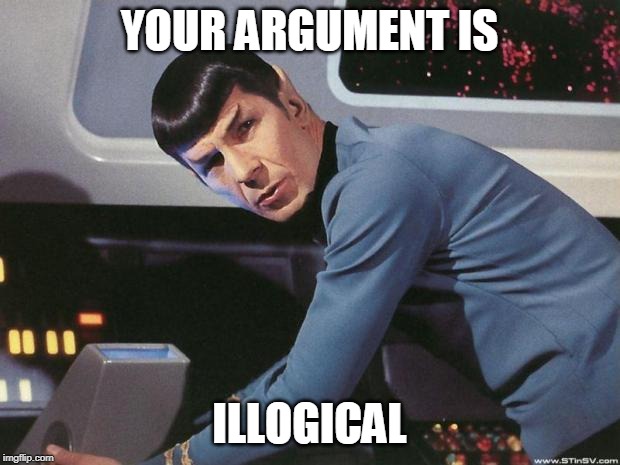What is Critical Thinking and Why is it Valuable in the Workplace?
- Articles and Resources
- > Personal Effectiveness
- > What is Critical Thinking and Why is it Valuable in the Workplace?
There are times at work when you simply have to “do.” A tight deadline, a demanding project outline, or a highly particular superior might mean that it makes sense to complete a task without too much mental tinkering. But work like this can be unsustainable and worse — it won’t leverage your ability to think critically.
There is value in thinking critically in every aspect of your life. From making decisions in your personal life, to interrogating the media you consume, to assessing your work with a critical eye, applying critical thinking is an essential skill everyone should be trying to hone.
At your workplace, critical thinking can distinguish you as a leader, and a valuable mind to bounce ideas off. It can help improve the quality of your work, and the perception those higher up the chain have of you.
Here’s what you need to know about critical thinking in the workplace:
What Exactly is “Critical Thinking”?
In a nutshell, critical thinking is the ability to think reasonably, detaching yourself from personal bias, emotional responses, and subjective opinions. It involves using the data at hand to make a reasoned choice without falling prey to the temptations of doing things simply because they’ve always been done a certain way.
Critical thinking takes time. It might be quicker simply to take instruction at face value, or rely on the traditions of your team. But without analyzing the reasons behind decisions and tasks, it becomes extremely easy to adopt bad habits. This might be time-wasting meetings, inefficient uses of effort, or poor interactions with team members. Taking the time to ask “why” you’re doing something is the first step to thinking critically.
Sometimes, data is available which allows you to make reasoned decisions based on absolute facts. If you can show that a new best practice can objectively improve current processes with hard data, you’ve used the very basics of critical thinking. That said, actual numbers aren’t always available when making a decision. Real critical thinking involves taking a careful look at situations and making a decision based on what is known, not what is felt.
Why Is Critical Thinking Important in the Workplace?
The short answer to the above question is this: critical thinkers make the best decisions, most often. And in the workplace, where choices about how to complete tasks, communicate information, relate with coworkers, and develop strategy are so common, critical thinkers are extremely valuable.
A savvy hiring manager will make this part of the recruitment process. It’s pretty easy to gauge how someone is inclined to solve a problem — ask them how they would deal with a specific situation, and give them the opportunity to use their critical thinking skills, versus deferring to an emotional, or prescribed reaction. Employing people who can think and act reasonably will pay enormous dividends down the road.
Using your critical thinking skills in the workplace will define you as a problem solver. This is not only useful career-wise (although having upper-level people at your company think highly of you is undoubtedly a benefit) it also establishes you as a leader among your fellow team members. Demonstrating your ability to solve problems and accomplish goals effectively will help instill confidence in you with all your coworkers.
How to Use Critical Thinking in the Workplace
The first step to actually using critical thinking is approaching every situation with an open mind. You need to be receptive to all information available, not just the kind that satisfies your preconceived notions or personal biases. This can be easier said than done, of course — lessons learned and beliefs held are often done so with a reason. But when it comes to critical thinking, it’s important to analyze each situation independently.
Once you’ve analyzed a situation with an open mind, you need to consider how to communicate it properly. It’s all very well and good to approach situations with objective logic, but it doesn’t do you any favours to sound like Mr. Spock when you’re conveying your conclusions. Be tactful, patient and humble when you are explaining how and why you’ve come to decisions. Use data if available to support your findings, but understand that not everyone is able to remove emotion from situations.
The final, and perhaps least obvious, application with critical thinking is creativity. Often, getting creative means pushing boundaries and reshaping convention. This means taking a risk — one that can often be worth the reward. Using a critical thinking approach when getting creative can help you mitigate the risk, and better determine what value your creativity can bring. It will help you and your team try new things and reinvent current processes while hopefully not rocking the boat too much.
Learn More About Critical Thinking
Critical thinking is a valuable skill for all aspects of your life. It benefits problem solving, creativity, and teamwork. And it translates particularly well to the workplace, where it can distinguish you as a valuable employee and leader.
Taking the extra time to examine things objectively, make decisions based on logic, and communicate it tactfully will help you, those you work with, and your work goals prosper. To learn more about how to do that, have a look at our Critical Thinking and Problem Solving for Effective Decision-Making workshop and register today!
